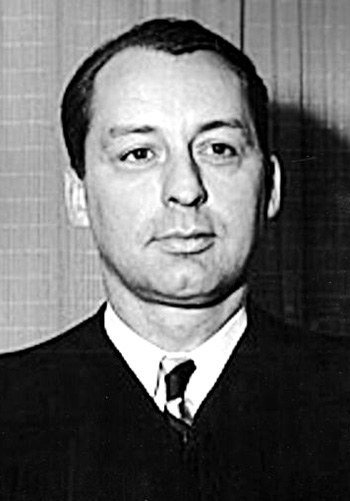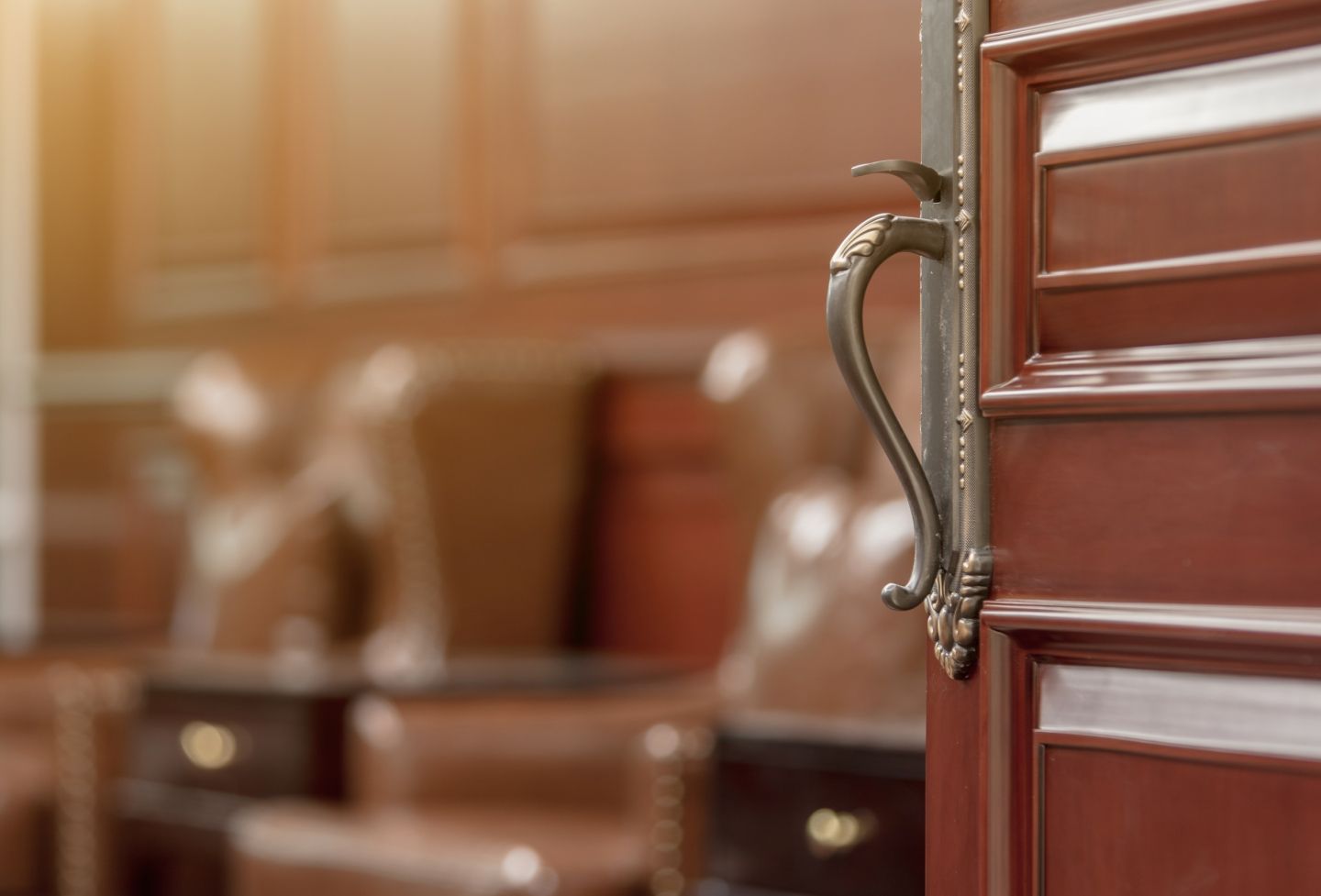As Delaware Supreme Court Chief Justice Collins J. Seitz Jr. was reviewing clerkship applications last fall, one resume jumped out at him as both impressively unique and yet familiar in the way that, say, a scent of cologne can evoke memories of people and places past.
Unlike most clerkship applicants, who tend to be J.D. students, Leah Berger ’23 is an LL.M. candidate at the University of Virginia School of Law with an undergraduate law degree from Oxford University. A collegiate powerlifter, she’s originally from Vermont, where Seitz’s two children attended college and where Seitz owns a vacation home. And her UVA Law pedigree brought to mind memories of his father, who escaped the Great Depression by enrolling at UVA Law in 1937 and later became a prominent jurist as well. Soon, Berger had an interview that sealed the deal.
The Delaware opportunity made perfect sense for Berger, she said.
“Many of my interests are in the corporate world, and of course the Delaware court is the largest and most prominent court in the state where most corporations are incorporated, so there are a lot of interesting cases coming through there,” Berger said. “I’m quite interested in cross-border transactions and international legal work, but I’m planning to start my career in the U.S., so the clerkship gives me a great opportunity to get more exposure to the U.S. legal system.”
One of Berger’s professors, Mitu Gulati, had interviewed Seitz earlier this year about the evolution of contract law. During that conversation, Seitz mentioned that his father was a UVA Law graduate and he told Gulati to send him promising UVA students who would appreciate the opportunity to clerk in Delaware, a hotbed of corporate legal disputes.
Gulati guided Berger toward the clerkship in Wilmington after being impressed by her work in his International Debt Transactions course.
The Delaware Supreme Court has immediate appellate jurisdiction over the Delaware Court of Chancery, which is considered perhaps the preeminent business court in the world. Although the state has just 1 million residents, more than 1.8 million businesses are incorporated in Delaware, including more than two-thirds of Fortune 500 companies, according to the State Division of Corporations. In 2021, 93% of U.S. initial public offerings were registered in Delaware.
The 230-year-old Court of Chancery’s specialized business expertise is one of the things that encourages companies to incorporate in Delaware, along with the state’s favorable tax laws and incorporation law, according to Chief Justice Seitz.
“The Delaware General Corporation Law allows corporations a lot of flexibility in how they manage their affairs, and in many commercial contracts people choose Delaware courts and Delaware law to resolve any disputes because the law is stable and the court is specialized,” Seitz said.
The Court of Chancery has authored most modern U.S. corporation case law, according to the Division of Corporations’ website, and any case appeals would be reviewed by Seitz’s court.
In July, Twitter, which is incorporated in Delaware, sued Elon Musk in the Court of Chancery to force him to follow through with buying the company. And Seitz’s court is hearing Tesla shareholders’ appeal in an unrelated suit challenging the carmaker’s acquisition of SolarCity.
After clerking at any court in Delaware, Seitz said, “you’re a hot commodity to be hired anywhere in the country to do corporate and commercial work because — even though many firms are not located in Delaware — they all litigate here.” (Seitz also noted that there are Wilmington firms that hire “almost exclusively UVA Law students,” and at least 77 UVA Law graduates practice in Delaware, according to alumni records.)
For his part, Seitz was excited to hire a graduate of his father’s (and cousin’s) alma mater. The elder Seitz was also a “Collins” and also a judge. Collins Seitz Sr. attended UVA Law through the kindness of a member of Delaware’s wealthy du Pont family. Fatherless and afflicted by the grinding poverty of the Depression era, Seitz Sr. moved to Charlottesville with all his belongings. They fit in just one suitcase, Seitz said.

Seitz Sr. graduated in 1940 and served as vice chancellor and then chancellor on the Court of Chancery. Ultimately he rose to chief judge on the U.S. Court of Appeals for the Third Circuit.
As a young vice chancellor in the early 1950s, Seitz Sr. issued three rulings that led to the dismantling of segregation in Delaware. In one, he enjoined the University of Delaware from considering race in admissions, and the trustees did not appeal. In two later cases, he ordered the Black plaintiffs be admitted to the all-white elementary and secondary schools at issue in the case.
Appeals of Seitz’s latter two rulings were consolidated into the Brown v. Board of Education case. Seitz’s orders were the only two cases in the consolidated matter to be affirmed by the U.S. Supreme Court’s decision in Brown, which held that “separate but equal” was unconstitutional. (Another UVA alumnus — Elaine Jones ’70, UVA Law’s first Black alumna — was so inspired by Seitz Sr.’s work that his name is woven into her portrait in Clay Hall.)
In recognition of his contributions to the legal field, UVA awarded Seitz Sr. the Thomas Jefferson Foundation Medal in Law in 1990, the highest external honor the University bestows. He died in 1998.
The younger Seitz said he was inspired by his father’s public service and values his dad’s opinion of UVA Law and its students. Until Berger, he had never had a clerk from the Law School, but he is open to hiring more.
“My father loved UVA Law; I have even kept his suitcase he took to UVA,” Seitz said. “I told [Gulati] to be on the lookout, because I would love to have more clerks from UVA.”
Founded in 1819, the University of Virginia School of Law is the second-oldest continuously operating law school in the nation. Consistently ranked among the top law schools, Virginia is a world-renowned training ground for distinguished lawyers and public servants, instilling in them a commitment to leadership, integrity and community service.


